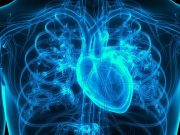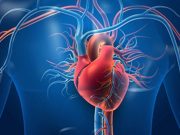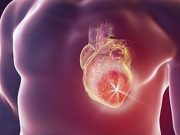Tag: Heart / Stroke-Related: Heart Attack
ASA: Stroke Survivors Face Twofold Higher Risk for MI One Year After Stroke
Findings seen with or without cervical artery dissection
Air Pollution Increases Heart Attacks in Nonsmokers
Findings for same-day nitric oxide levels and average levels for particulate matter in the preceding three days
AHA: No Real Benefit Seen for Liberal Transfusion Strategy in AMI, Anemia
Liberal transfusion strategy does not significantly reduce the risk for recurrent myocardial infarction or death
MI Classified Into Four Stages Based on Myocardial Tissue Injury
Four stages of progressively worsening myocardial tissue injury described
Adjunctive Tongxinluo Therapy Aids STEMI Outcomes
Benefits of the traditional Chinese medicine compound seen for clinical outcomes at both 30 days and one year
Stress, Depression Common Among Women With Myocardial Infarction
Stress levels higher in women with MI and obstructive coronary artery disease versus MI with nonobstructive coronary arteries
Hospitals Struggling to Reach Time-Related Treatment Goals for STEMI
Authors say pandemic-related issues, including staffing, pose challenges
Hospital COVID-19 Burden Impacted NSTEMI Treatment, Outcome
Outcomes and treatment worse for patients hospitalized during weeks with a high hospital COVID-19 burden
Many Heart Attack, Stroke Survivors Do Not Know Their Cholesterol Levels
American Heart Association says knowing levels is key to preventing recurrent heart attack, stroke
ESC: Adverse Outcomes Increased With Suboptimal Adherence to Aspirin After MI
Risk increased for recurrent MI, ischemic stroke, or death with suboptimal adherence through eight years after MI














